I am building a simple live search based on this tutorial: http://blog.ninetofive.me/blog/build-a-live-search-with-ajax-php-and-mysql/
It works fine for queries like this with one word: 
Or for queries with part of a word: 
Or for queries with two words or parts of words where they occur together in the results being searched: 
But if I search for two words that do not occur next to each other the query fails: 
How would I modify my query so that I can search for any number of keywords that appear at any location in my results?
For example if my db has a record such as: The quick brown fox jumps over the lazy dog
I want a result to be returned if I search for: quick jumps dog or dog over not just quick brown or fox jumps or fox and so on.
I was thinking something along the lines of exploding my query if it has more than one word in it and then making my $search_string into an array of keywords for MySQL to query but I don't know if that is the best way to go about it.
Query:
// Get Search
$search_string = preg_replace("/[^A-Za-z0-9]+[.]/", " ", $_POST['query']);
$search_string = $tutorial_db->real_escape_string($search_string);
// Check Length More Than One Character
if (strlen($search_string) >= 1 && $search_string !== ' ') {
// Build Query
$query = 'SELECT * FROM search WHERE subsection LIKE "%'.$search_string.'%" OR def LIKE "%'.$search_string.'%" OR exception LIKE "%'.$search_string.'%" ORDER BY subsection ASC';
Full code:
<?php
/************************************************
The Search PHP File
************************************************/
/************************************************
MySQL Connect
************************************************/
// Credentials
$dbhost = "localhost";
$dbname = "livesearch";
$dbuser = "live";
$dbpass = "search";
// Connection
global $tutorial_db;
$tutorial_db = new mysqli();
$tutorial_db->connect($dbhost, $dbuser, $dbpass, $dbname);
$tutorial_db->set_charset("utf8");
// Check Connection
if ($tutorial_db->connect_errno) {
printf("Connect failed: %s\n", $tutorial_db->connect_error);
exit();
}
/************************************************
Search Functionality
************************************************/
// Define Output HTML Formating
$html = '';
$html .= '<li class="result">';
$html .= '<a target="_blank" href="urlString">';
$html .= '<h2><b> codeString - yearString - chapterString - sectionString - SUBHERE</b></h1>';
$html .= '<h3>defString</h3>';
//try to add exception string
$html .= '</br><h3>exceptionString</h3>';
$html .= '</a>';
$html .= '</li>';
// Get Search
$search_string = preg_replace("/[^A-Za-z0-9]+[.]/", " ", $_POST['query']);
$search_string = $tutorial_db->real_escape_string($search_string);
// Check Length More Than One Character
if (strlen($search_string) >= 1 && $search_string !== ' ') {
// Build Query
//$query = 'SELECT * FROM search WHERE function LIKE "%'.$search_string.'%" OR name LIKE "%'.$search_string.'%"';
$query = 'SELECT * FROM search WHERE subsection LIKE "%'.$search_string.'%" OR def LIKE "%'.$search_string.'%" OR exception LIKE "%'.$search_string.'%" ORDER BY subsection ASC';
// Do Search
$result = $tutorial_db->query($query);
while($results = $result->fetch_array()) {
$result_array[] = $results;
}
// Check If We Have Results
if (isset($result_array)) {
foreach ($result_array as $result) {
// Format Output Strings And Hightlight Matches
//$display_function = preg_replace("/".$search_string."/i", "<b class='highlight'>".$search_string."</b>", $result['function']);
//$display_name = preg_replace("/".$search_string."/i", "<b class='highlight'>".$search_string."</b>", $result['name']);
//$display_url = 'http://php.net/manual-lookup.php?pattern='.urlencode($result['function']).'&lang=en';
// Format Output Strings And Hightlight Matches
//Format code - ex IBC
$display_code = preg_replace("/".$search_string."/i", "<b class='highlight'>".$search_string."</b>", $result['code']);
//Format year - ex 2012
$display_year = preg_replace("/".$search_string."/i", "<b class='highlight'>".$search_string."</b>", $result['year']);
//Format Chapter - ex Means Of Egress
$display_chapter = preg_replace("/".$search_string."/i", "<b class='highlight'>".$search_string."</b>", $result['chapter']);
//Format Section - ex Stairs
$display_section = preg_replace("/".$search_string."/i", "<b class='highlight'>".$search_string."</b>", $result['section']);
//Format sub Section - ex 1009.4 width
$display_sub = preg_replace("/".$search_string."/i", "<b class='highlight'>".$search_string."</b>", $result['subsection']);
//$display_subsection = preg_replace("/".$search_string."/i", "<b class='highlight'>".$search_string."</b>", $result['subsection']);
$display_def = preg_replace("/".$search_string."/i", "<b class='highlight'>".$search_string."</b>", $result['def']);
$display_exception = preg_replace("/".$search_string."/i", "<b class='highlight'>".$search_string."</b>", $result['exception']);
$display_url = 'http://php.net/manual-lookup.php?pattern='.urlencode($result['code']).'&lang=en';
// Insert Name
$output = str_replace('nameString', $display_name, $html);
//Insert Code
$output = str_replace('codeString', $display_code, $output);
//Insert Year
$output = str_replace('yearString', $display_year, $output);
//Insert Chapter
$output = str_replace('chapterString', $display_chapter, $output);
// Insert Section
$output = str_replace('sectionString', $display_section, $output);
// Insert Sub Section
$output = str_replace('SUBHERE', $display_sub, $output);
// Insert Defenition
$output = str_replace('defString', $display_def, $output);
// Insert exceptions
$output = str_replace('exceptionString', $display_exception, $output);
// Insert URL
$output = str_replace('urlString', $display_url, $output);
// Output
echo($output);
}
}else{
// Format No Results Output
$output = str_replace('urlString', 'javascript:void(0);', $html);
$output = str_replace('nameString', '<b>No Results Found.</b>', $output);
$output = str_replace('functionString', 'Sorry :(', $output);
// Output
echo($output);
}
}
?>